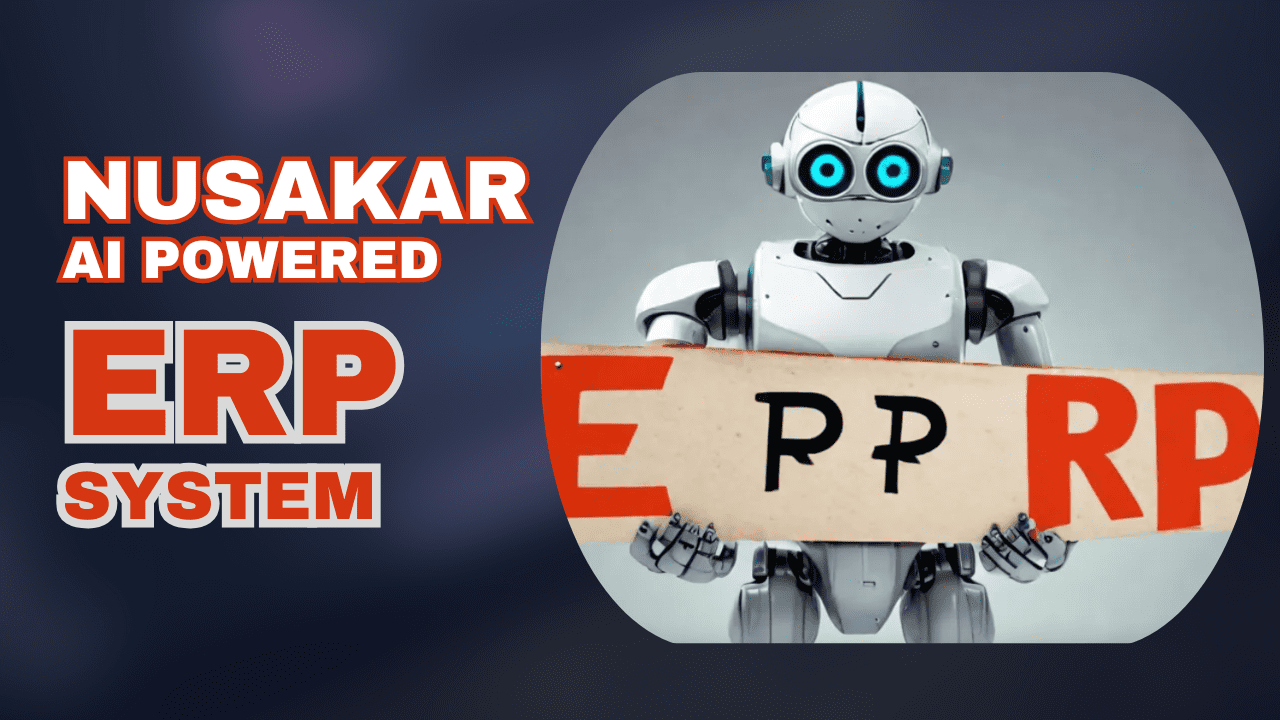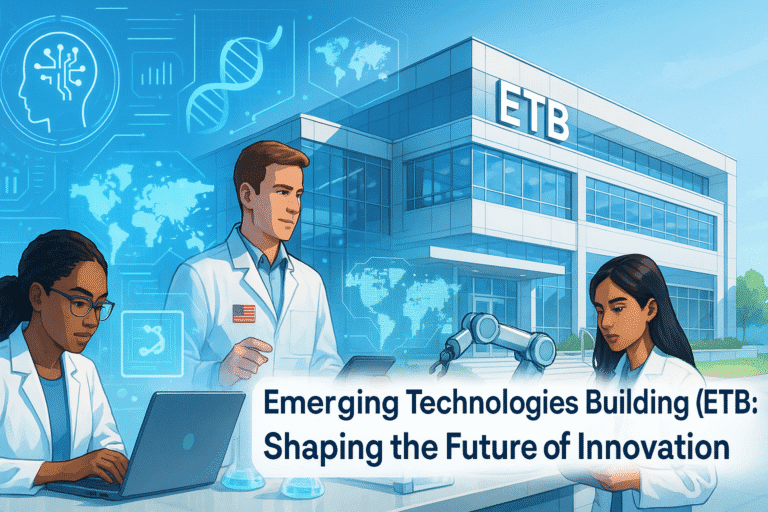So What Are The 5 Most Important Technologies Influencing Business in 2023? The integration of Nusakar AI powered ERP system is not merely an option; it is a requirement to remain at the forefront. Such a transformative technology has so many features, such as efficiency, as well as scalability, and many insights that can be a game-changer for Nusaka and lead to a big leap into the future.
All You Need to Know About ERP Systems
Enterprise Resource Planning (ERP) systems have historically been the core of an organization, providing efficiency to functions such as finance, procurement, supply chain, and human resources. These systems bring data together, streamline workflows, and improve decision-making.
However, ERPs usually have limitations when working with complex data, and not all can provide actionable insights. This is where AI comes into play as it takes the ERP systems to the next level by automating processes, analyzing data, and predicting trends in a precise manner.
Before getting into that, let us take a groundbreaking step to see why AI-Driven ERP systems are very crucial for Nusakar.

Predictive analytaaics empowers organizations to make more informed decisions.
It can process large volumes of data, in real-time, and provide predictive insights to the decision-makers. To Nusakar, it means a clearer view of market trends, customer behavior, and operational bottlenecks.
Elimination of Repetitive Work
AI helps in automating routine tasks, which frees up employee time to devote to strategic activity. Passwords, for example, are less likely to be easily forgotten by an AI-driven enterprise resource planning system than by someone else.) Nusakar AI Powered ERP System can save a lot of time and resources, from inventory control to invoice processing.
Improved Customer Experience
Customer satisfaction is all about personalization. AI algorithms in ERP systems can analyze customer data and provide personalized experience, which boost service delivery and increase retention rates.
Scalability and Adaptability
As the company expands, an AI-based ERP would be able to able to scale by itself with data and operational requirements. It works to changing business needs with minimum reconfiguration.
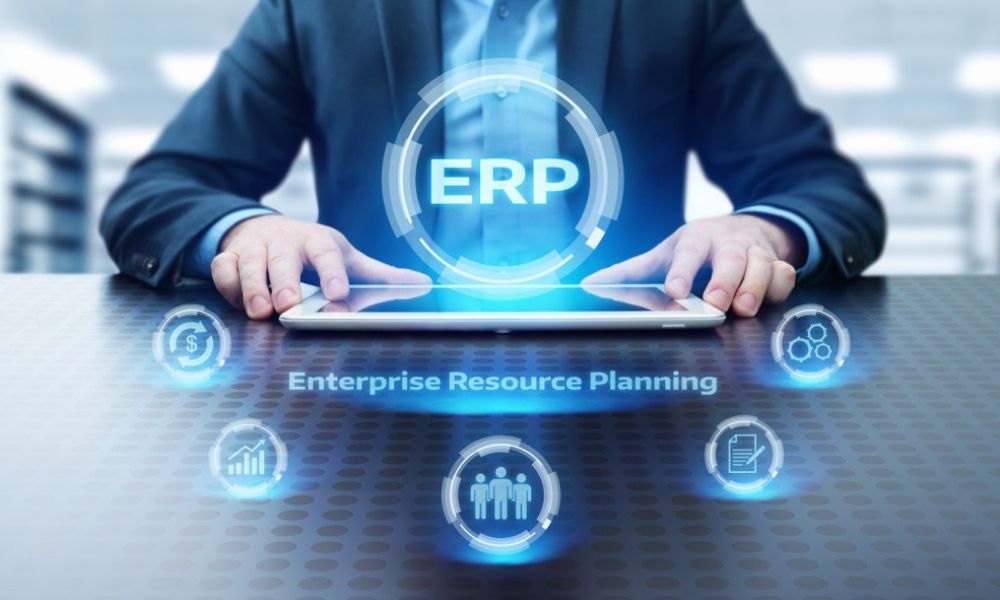
Essential Features of an AI-Powered ERP System:
1. Intelligent Automation
Through automation and machine learning, AI-based ERP systems facilitate the functioning of complex workflows to make sure that a company consistently stays efficient throughout departments.
2. Advanced Data Analytics
With AI, ERP systems can not only analyze structured data but can also compute insights from unstructured data.
3. NLP (Natural Language Processing)
NLP Integration — Provides voice or text-based interaction with the ERP system for the users, making the ERP solution more accessible.
4. Machine Learning Algorithms
With the help of machine learning, the ERP system will be able to learn patterns from the data collected and improve over time by optimizing their operations.
5. Enhanced Cybersecurity
Additionally, AI technologies enhance ERP security with measures that safeguard sensitive business data.
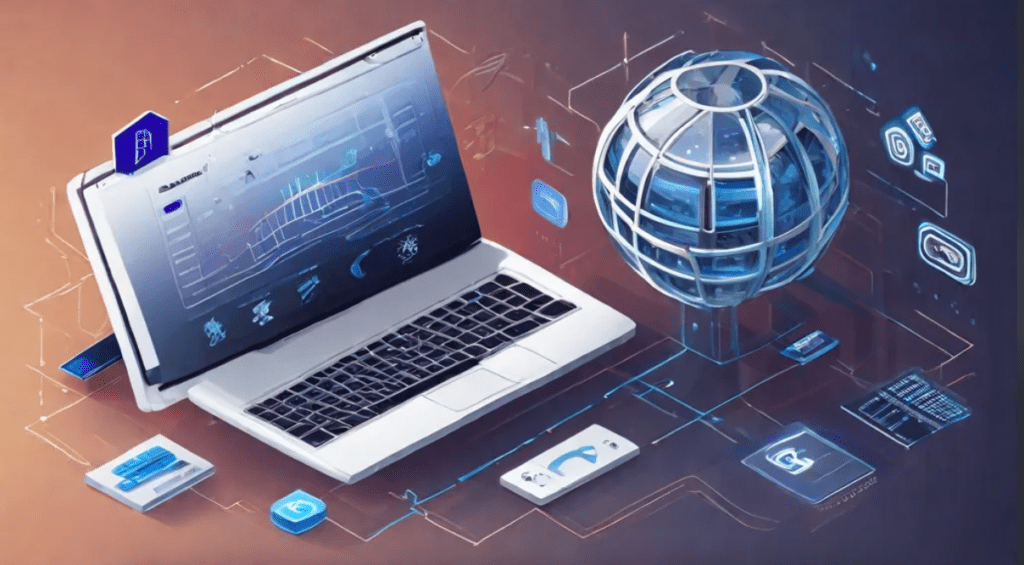
Advantages of the AI-Driven ERP system implementation for Nusakar:
1. Boosted Productivity
Automation and efficient workflows minimize manual work, allowing staff to concentrate on innovation and strategy.
2. Cost Efficiency
Error reduction and process optimization can make a big difference for Nusakar in terms of cost reduction.
3. Faster Decision-Making
Nusakar’s real-time insights enable them to make faster, more informed decisions, giving them a competitive advantage.
4. Sustainability
AI-powered ERP systems can improve the way resources are used, eliminate unnecessary waste, which fits Nusakar’s goal for eco-friendly business.

Challenges to Consider:
However, there are some challenges that Nusakar needs to solve when implementing an AI-based ERP system:
1. Initial Investment
The cost to implement (budgeting) can be significant.
2. Employee Training
It is key to ensure employees are trained on how to use the system effectively.
3. Compatibility with Current Systems
Integration with Nusakar’s existing tools and processes might mean careful planning to ensure it can happen easily and successfully.
4. Implementation Best Practices
Define Clear Objectives
Specify What Nusakar Wants to Achieve from the AI Driven ERP System.
Choose the Right Vendor
i.e. Partner with an Established AI-ready ERP Provider
Prepare for Change Management
Train your people and nurture culture of tech innovation.
Monitor and Evaluate
Iterate on the process regularly, fine-tuning the variables around what is important.
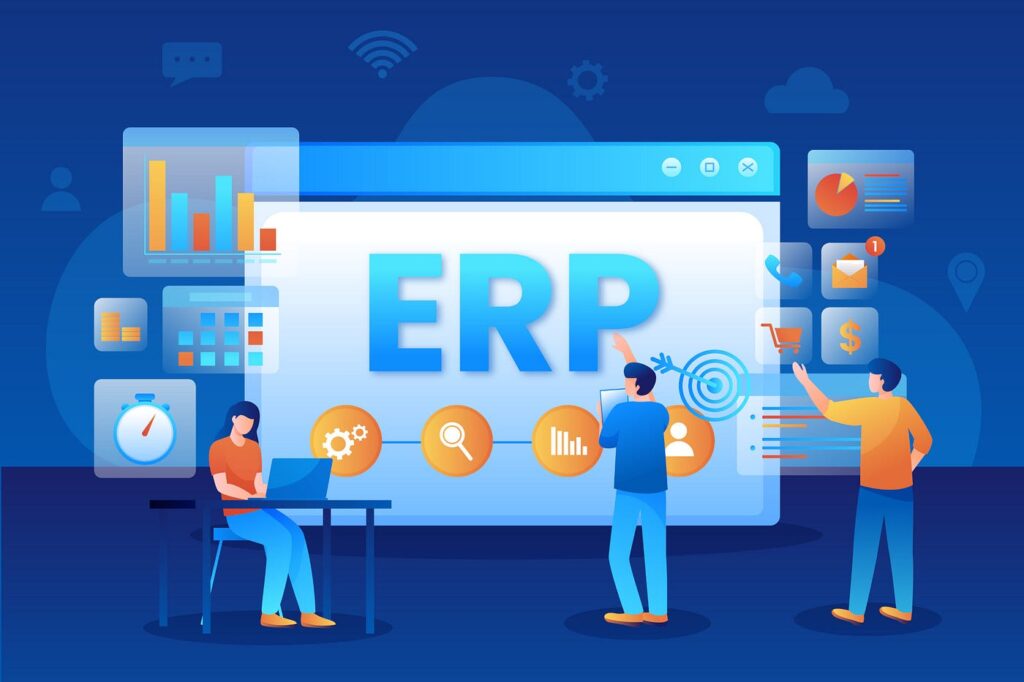
Nusakar, the Future-orient AI-Powered ERP System
For Nusakar, the adoption of an AI-enabled ERP system is a transformative initiative. Mendeley would focus its attention on guiding Nusakar through the changes in AI technology in today competitive world. That vision is indicative of the ongoing change which transforms Nusakar into an enterprise that is ready to face the future.
The future begins today, and an AI-powered ERP system will be the foundation of the evolution of Nusakar.
How can Nusakar overcome challenges with AI-powered ERP?
Nusakar may face several roadblocks during an AI-based ERP system implementation. Here’s a breakdown:
Initial Costs
The upside of AI-based ERP systems can be quite high. Whether for software acquisition and customization or hardware upgrades, the initial costs can stretch budgets, particularly for smaller organizations.
Complexity of Integration
Integrating an AI-driven ERP system with already established tools and workflows can be difficult. Transplanting data from outmoded systems to the new ERP is a task that necessitates careful strategising to avert disruptions.
Employee Resistance
Employees who are unfamiliar with AI systems often resist adopting new technology. Skepticism about the platform and resulting user adoption will need to be overcome by concerted training and change management efforts.
Training Requirements
AI-based ERP will have a steep learning curve. Training employees to use the system properly can be time-consuming and resource-intensive.
Data Quality and Management
So, an AI-powered system is very much dependent on quality data. But inconsistent or incomplete data inputs can create inaccurate predictions and inefficiencies.
Cybersecurity Risks
The use cases of AI systems increasingly involve sensitive business data, making them easy prey for cyberattacks. It is vital to ensure cybersecurity measures robust to secure information Nusakara.
Ongoing Maintenance
To deliver optimal performance, AI systems require constant updates, monitoring, and optimization. This can increase operational costs as they require maintenance.
Dependence on Vendors
Potential Quality Gaps: Depending on a third-party service provider for AI-powered ERP solutions can lead to quality gaps if vendor support is limited or experience service fluctuations.
Customization Challenges
Testing and Implementing an ERP can be time-consuming and technically challenging with regard to customizing the ERP according to Nusakar’s needs.

How do you overcome these challenges?
AI-based ERP Solution Implementation Challenges and Solutions.
Nusakar could try a few strategies to accomplish this:
Essential Action Steps: Develop a Clear Implementation Roadmap
- Set goals and milestones specific to the implementation process.
- Focus on the essential features and functionalities as per Nusakar’s business requirements.
- Provide exactly the right amount of resources that will not put too much pressure on the teams in the transition phase.
- Provide training for employees on the new system and the benefits of using it.
- Conduct practical workshops and develop easy-to-follow manuals for the staff.
- Assign “ERP champions” in the organization to promote the user adoption and to address the questions.
Opt for a Gradual Rollout
- Be gradual in implementing the system for non-critical functions to reduce risks.
- Thoroughly test out each module before you deploy the whole system in each department.
- Make use of the pilot phase to gather feedback to improve on the system.
Partner with a Trusted Vendor
- Pick a trusted ERP vendor experienced in AI integration and robust customer service.
- Choose a vendor that can customize their solutions to suit Nusakar’s unique processes.
- Use it as a long-term partnership for continued support and updates.
Establish Business Value and Maintain a Single Source of Truth
- Examine existing data to uncover inaccuracies, inconsistencies, or redundancies.
- Before migrating, standardize data formats, and clean up datasets.
- Ensure ongoing quality with strong data governance.
Enhance Cybersecurity.
- Work with cybersecurity professionals to fortify the ERP system against potential vulnerabilities.
- By using AI to implement security protocols that identify and react to breaches proactively.
- Regularly update your software to protect against new vulnerabilities.
Allocate Budget Wisely
- Perform cost-benefit analysis to project ROI.
- Anticipate Hidden Costs Training, maintenance, and third-party integrations.
- Explore avenues for funding or grants that may alleviate some of the financial burden, if relevant.
Cultivate a Collaborative Culture
- Involve employees and stakeholders earlier in the decision-making process.
- And selling the long-term benefits of the ERP system will help build enthusiasm with your users.
- Overcome resistance with emotion and offer rewards for early adopters.
Monitor and Optimize
- Use AI-powered analytics to monitor the system performance continuously.
- Set regular check-ins — log performance against KPIs.
- Over time, collect user feedback to improve functionality and usability.
By applying these strategies, Nusakar can navigate potential hurdles and maximize the benefits of a fully-fledged AI-powered ERP system. This foresight and consideration will lead to a smoother implementation process and success in the long run.
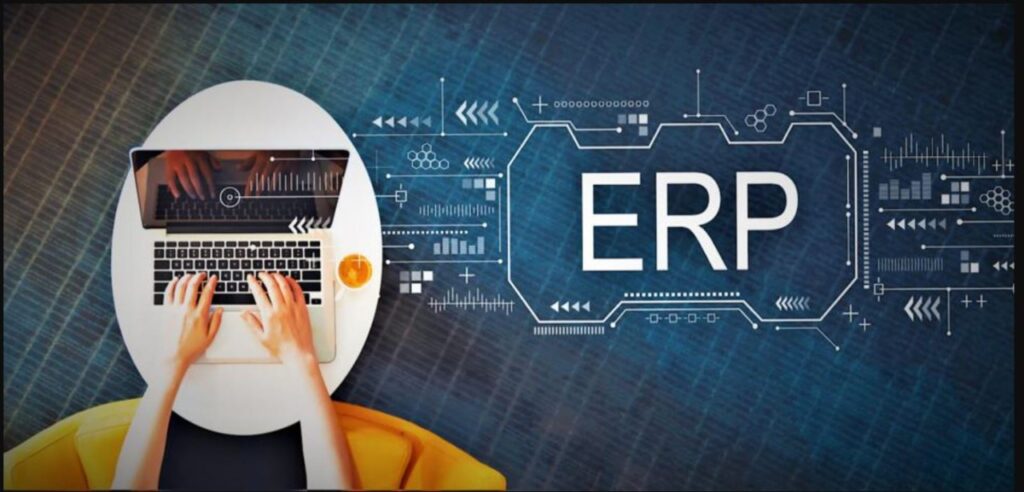
FAQs
So, what is an AI-based ERP system?
An AI-Powered ERP system is an enterprise resource planning software that includes AI, automating tasks, analyzing data, and making predictions, it merges traditional ERP with artificial intelligence to improve efficiency.
What are the advantages of an AI-based ERP system for my business?
These include higher productivity, reduced costs, real-time analysis, better customer experience, scalability, and flexibility with changing business requirements.
AI has a wide range of applications, but are AI-powered ERP systems suitable for every type of business?
Yes, they can be customized for businesses of different sizes and sectors. But the degree of personalization can fluctuate depending on individual needs and assets.
AI-powered ERP system: What are its salient features?
Key features include:
- Intelligent automation
- Advanced data analytics
- Natural language processing
- Machine learning capabilities
- Robust cybersecurity measures
What potential implementation challenges could we face?
- Challenges include:
- High initial costs
- Integration complexity
- Employee resistance
- Data quality issues
- Cybersecurity risks
- Training requirements
What is the answer to overcome these challenges?
Strategies include:
- Clarity on a point by point implementation road-map
- Applying a variety of barriers to entry
- enhancing cyber security standards
- Keeping data valid and uniform
- Collaborating with a reputable vendor
How long does an AI driven ERP implementation take?
It depends on the extent of the system and its intricacy. For more seamless implementation, a phased implementation approach is typically encouraged.
How much does an AI-Automated ERP system cost?
Costs vary by vendor, degree of customization, scalability and extra features. A cost-benefit analysis is advised to help estimate ROI.
Is AI-driven ERP secure?
Yes, as long as you have strong and potentially AI enabled cybersecurity and encryption and proof of original code, etc.
Does an AI-driven ERP integrate with existing systems?
Yes, but it can be a lot of work and knowledge to integrate due to versioning and moving data.
How do AI-driven ERP systems use data?
The fundamental element of AI-driven ERP systems is data. Accurate predictions and efficient operations rely on clean, high-quality data.
Is technical expertise needed to work with an AI-driven ERP?
Modern systems are generally user-friendly and have training opportunities to assist users, while technical expertise is beneficial.
How do I prepare my business for an AI-native ERP system?
Preparation includes:
- Auditing current workflows
- Defining clear goals
- Training employees
- Teaming up with a trusted vendor
Which industries gain the highest value from AI-driven ERP systems?
They are benefiting industries such as manufacturing, retail, healthcare, logistics, and finance with streamlined operations and data-driven insights.
Also read about AI in ERP: Benefits, Examples & Challenges
Also read about Conversational AI in health care

